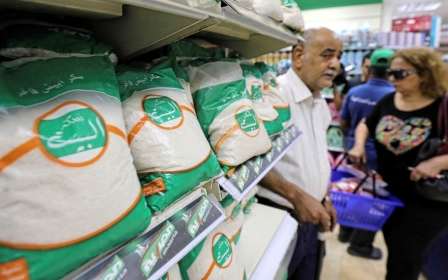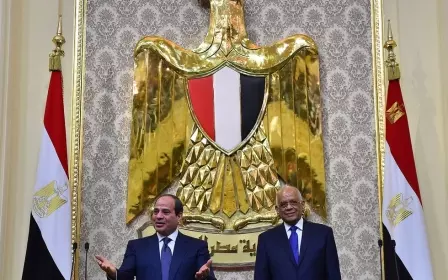Economists predict 5.2 percent growth in Egypt as poverty deepens
Economists have predicted growth in Egypt of 5.2 percent for the 2018-19 fiscal year, following the end of the International Monetary Fund (IMF) loan programme.
Egypt signed a three-year $12 billion deal with the IMF in 2016 in a bid to fix its budget deficit and lure foreign investors back into an economy battered by years of unrest.
According to the poll of 13 economists, conducted by Reuters, Egypt’s economy will then grow by 5.5 percent in the fiscal year 2019-20.
Meanwhile, macroeconomic growth has gone hand-in-hand with rising poverty rates, due to the exponential price hikes linked to IMF reforms.
In order to rebuild his country, Egyptian President Abdel Fattah el-Sisi has vowed to eat only one meal a day for the rest of his life.
Inflation is expected to remain at 14.2 percent in the current fiscal year, and to drop to 12.2 percent in 2019-20.
"We expect inflation to remain elevated largely due to recent subsidy cuts. As such, pressure on household discretionary income may persist in the near term, in our view," said Bilal Khan, a senior economist at Standard Chartered PLC.
Subsidy cuts and currency flotation associated with the IMF deal have led to record high inflation rates, reaching 33 percent in July 2017, according the state-run CAPMAS statistical agency.
Poverty on the rise
The majority of Egyptians are struggling to keep pace with rising prices. Nearly 60 percent of the population is living under the poverty line in some cities in 2018, according to the World Bank.
Economists critical of the IMF deal said it does not address structural flaws in the Egyptian economy, such as lack of productivity. It also should have been accompanied by social reforms such as increasing state spending on education and healthcare - which represent 60 percent of the household expenditure of middle-class families in Egypt.
“In violation of the constitution passed under Sisi, the health and education budgets are less than their constitutional percentage,” said Ahmed Zekrallah, an Egyptian economics professor.
Fixing the budget deficit could have been implemented by measures such as ending preferential wages and pensions for senior officials - which are subsidised by the state budget - Zekrallah told MEE.
“Wage inequality and the crackdown on auditing agencies reflects the Egyptian government’s misguided approach to economic reform,” he said.
Translation: I have a painful question to ask, for those who still have feelings: have the Egyptians not seen the “wondrous wonders” yet?
On Tuesday, Sisi urged Egyptians to exercise patience as they endure tough austerity measures tied to the IMF deal.
“You should be proud of yourselves… Be patient, and you will see wondrous wonders in Egypt,” Sisi said at an inauguration ceremony for three power plants in Cairo.
“One hundred million people want to be educated, they want to have hope and education. This will not be achieved by eating and drinking. I swear by God, if it takes one meal a day to build our nation, I will eat one meal a day for the rest of my life.”
Sisi's remarks have sparked a wave of sarcasm on Egyptian social media, with "wondrous wonders" becoming a viral hashtag.
New MEE newsletter: Jerusalem Dispatch
Sign up to get the latest insights and analysis on Israel-Palestine, alongside Turkey Unpacked and other MEE newsletters
Middle East Eye delivers independent and unrivalled coverage and analysis of the Middle East, North Africa and beyond. To learn more about republishing this content and the associated fees, please fill out this form. More about MEE can be found here.




